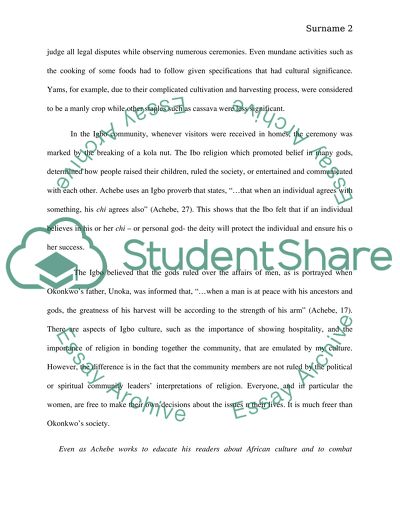Cite this document
(“Chinua Achebe's Things Fall Apart Book Review Essay”, n.d.)
Retrieved from https://studentshare.org/history/1487411-chinua-achebes-things-fall-apart-book-review
Retrieved from https://studentshare.org/history/1487411-chinua-achebes-things-fall-apart-book-review
(Chinua Achebe'S Things Fall Apart Book Review Essay)
https://studentshare.org/history/1487411-chinua-achebes-things-fall-apart-book-review.
https://studentshare.org/history/1487411-chinua-achebes-things-fall-apart-book-review.
“Chinua Achebe'S Things Fall Apart Book Review Essay”, n.d. https://studentshare.org/history/1487411-chinua-achebes-things-fall-apart-book-review.


